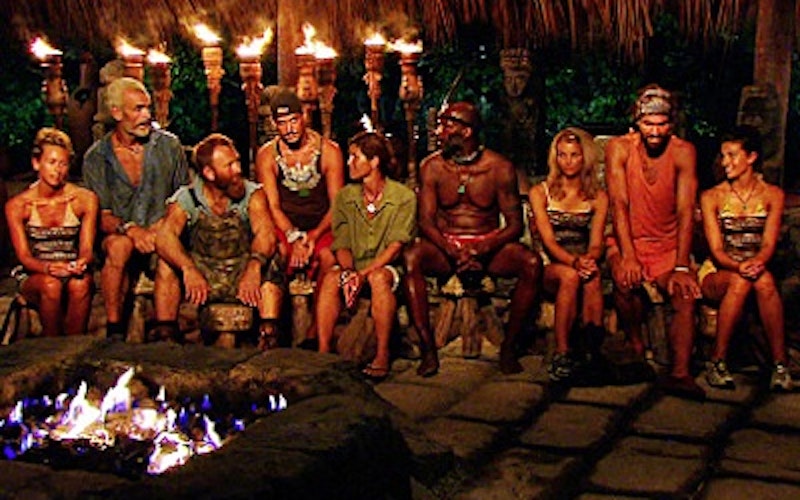
TV
'Survivor' and the importance of communion over competition
At the risk of plumbing the depths of a show that is generally as substantial as the breast implants of its contestants, a recent episode of “Survivor: Redemption Island” illustrated a simple characteristic of humanity that continues to plague us all - in our families, in our churches, in our schools and in our workplaces. And it all boils down to the fact that we cannot read each other's minds.
It happened like this. Steve, a white former NFL player, got into an argument with Phillip, an African-American former CIA agent, over the rice supply. Phillip has been an eccentric character throughout the season, girded in his pink briefs and bird feathers, alluding continuously to his career as a special agent, and in this episode proclaiming that he himself could “go off” at any moment. It’s easy to sympathize with Steve, when in the heat of the argument, he calls Phillip a lunatic. Things get more complicated when Phillip takes this insult as a racist comment.
The argument comes out in the Tribal Council when the contestants talk with the host, Jeff Probst, before they vote off another player. Probst, in a moment of group therapy, succeeds in drawing from Phillip that he made the leap from “lunatic” to a racist epithet because of previous life experiences. Steve is obviously hurt by the idea that he might be considered racist. Probst diffuses the situation with this statement: “Two people from different worlds had an argument. You took it one way … nobody can question the way that you took it. It’s quite possible that both of you were telling the truth.”
Anytime a body turns from communion to competition, whether intentional or not, it leads members of the group to feel isolated, territorial and quite possibly paranoid. Once that happens, each person’s insecurities, wounds and weaknesses lead them to be suspicious of what motives and meanings lie behind the others’ words, conversations and deeds.
As soon as a marriage becomes a competition rather than communion - competing to be the better health expert or the better parent or the better breadwinner - insecurities will rise to the top. Suddenly her worries about her imperfect body make her suspicious of the glance her husband may have directed toward someone else, or perhaps her innocent comment that so-and-so is such a great dad makes her husband feel that he, therefore, is not.
When employees are in a climate of competition instead of cooperation, they cannot trust each other or their employer. They become territorial and less communicative, protecting their own interests, and that makes teamwork pretty difficult.
When church members compete against themselves - for power, for influence, for support for individual ministries - they might feel unappreciated, or less important, or even unwanted. The body of Christ is then broken.
Ephesians 2:14-16 tells us how God has broken down the walls of hostility and made the two (Jew and Gentile, in this case) one: “His purpose was to create in himself one new man out of the two, thus making peace, and in this one body to reconcile both of them to God through the cross.” So God brings us together as he reconciles us to himself.
We aren’t called to read each other’s minds. We are, however called to love. Full reconciliation cannot occur in an atmosphere of competition or distrust. We must give each other the benefit of the doubt, recognizing that we each have a different set of experiences and knowledge that have brought us where we are. God has called us to work together using the strength of that experience and knowledge. No one should get voted out of this tribe.
(Photo courtesy of CBS. The season finale of "Survivor: Redemption Island" airs Sunday at 7 p.m. Central.)
Topics: TV, Culture At Large, Arts & Leisure, Theology & The Church, Faith, The Church, News & Politics, Social Trends, Home & Family, Family, Marriage, Parenting